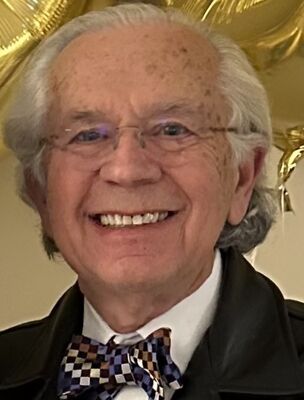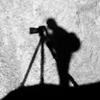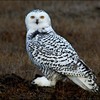After dark question?
Sep 12, 2017 06:41:20 #
When shooting after dark with your ISO in the edges of grainy, does a longer shutter speed help fight the grainy at all? For example, If I get something noticably grainy at ISO 1600, and f2.8, shutter speed at 1 second, then change ONLY the shutter speed to 1.5 or 2 seconds, does the grainy effect improve? thanks...
Sep 12, 2017 06:53:32 #
danersmiff wrote:
When shooting after dark with your ISO in the edges of grainy, does a longer shutter speed help fight the grainy at all? For example, If I get something noticably grainy at ISO 1600, and f2.8, shutter speed at 1 second, then change ONLY the shutter speed to 1.5 or 2 seconds, does the grainy effect improve? thanks...
Only slightly.
You are shooting in dim ambient light.
Maybe 30 seconds or a minute would make a difference but you will hardly see it from only doubling the exposure.
Sep 12, 2017 06:58:15 #
If you are using Lightroom for organizing and post-processing, the noise reduction slider in Develop will greatly improve the noise, but decrease sharpness.
Sep 12, 2017 07:05:25 #
danersmiff wrote:
When shooting after dark with your ISO in the edges of grainy, does a longer shutter speed help fight the grainy at all? For example, If I get something noticably grainy at ISO 1600, and f2.8, shutter speed at 1 second, then change ONLY the shutter speed to 1.5 or 2 seconds, does the grainy effect improve? thanks...
It depends what you are shooting. Most of my after dark shootings are of landscapes. I use a tripod low ISO, long shutter speed, mirror up, remote release and my aperture to how much depth of field I want.
Sep 12, 2017 07:21:25 #
sunil8463
Loc: Mumbai, India
hi,
I have Nikon D 7000 and D 810, both show some noise even at low ISO and long shutter speeds, i researched and found the sensor gets heated due to longer exposures. Can someone confirm this please?
I have Nikon D 7000 and D 810, both show some noise even at low ISO and long shutter speeds, i researched and found the sensor gets heated due to longer exposures. Can someone confirm this please?
Sep 12, 2017 07:45:26 #
Thanks for the quick answers. I shot about 30 photos last night trying to capture some lights over the river. My approach went like ISO 400, f2.8, shutter 1/2 sec, then shutter 1 sec, then 1.5, then 2.0 sec. After that I raised the ISO to 800, and repeated the process. Then raised the ISO again and again till i got to 1600. Trying to learn the performance of the camera. Your answers here tell me I am sort of on the right track, and I dont need to chase that anymore. So now its on to white balance settings across ISO settings this evening... :-)
Sep 12, 2017 08:04:13 #
danersmiff wrote:
Thanks for the quick answers. I shot about 30 phot... (show quote)
Keeping the ISO low will lead you to more exposure and less noise.
Sep 12, 2017 08:53:28 #
67skylark27
Loc: Fort Atkinson, WI
Try ISO 100 and 200 in there to reduce the noise and use a longer shutter or wider aperture
to compensate and see if you like that. You are on the right track, 400 should be fairly clean.
I'm assuming you are on a tripod and you have the vibration compensation/stabilization
turned off - Doing those things will make the images sharper as well.
to compensate and see if you like that. You are on the right track, 400 should be fairly clean.
I'm assuming you are on a tripod and you have the vibration compensation/stabilization
turned off - Doing those things will make the images sharper as well.
Sep 12, 2017 09:00:48 #
Sep 12, 2017 14:10:17 #
danersmiff wrote:
When shooting after dark with your ISO in the edges of grainy, does a longer shutter speed help fight the grainy at all? For example, If I get something noticably grainy at ISO 1600, and f2.8, shutter speed at 1 second, then change ONLY the shutter speed to 1.5 or 2 seconds, does the grainy effect improve? thanks...
No it does not, you take a chance of increasing the noise, as long exposures do create noise!
Sep 12, 2017 16:57:45 #
Selmsli, R.Greenway, turp77, sunil8463, 67skylark27, and speters, thank you all for taking the time to answer. I really appreciate it!
Sep 12, 2017 17:35:50 #
But if you're gonna double the SS, you can 1/2 the ISO, that will certainly be less noise!
SS
SS
Sep 12, 2017 17:46:21 #
SharpShooter wrote:
But if you're gonna double the SS, you can 1/2 the ISO, that will certainly be less noise!
SS
SS
To be clear, to "double the shutter speed" means going from 1 second to 2 seconds. You are doubling the exposure time. You will get a small improvement in noise but, as I already said, you will barely notice it.
But dropping from ISO 1600 to ISO 100 is a 4 stop change and you would go from 1 second to 16 seconds. That would be noticeable.
Sep 12, 2017 18:57:24 #
sunil8463 wrote:
hi,
I have Nikon D 7000 and D 810, both show some noise even at low ISO and long shutter speeds, i researched and found the sensor gets heated due to longer exposures. Can someone confirm this please?
I have Nikon D 7000 and D 810, both show some noise even at low ISO and long shutter speeds, i researched and found the sensor gets heated due to longer exposures. Can someone confirm this please?
Longer exposure time does NOT directly affect noise. If ISO is increased to compensate that is what increases noise.
The sensor does NOT heat up during long exposures. You can make a darkframe image, to later subtract the noise, during the first run of many multiple image sequences and it will be valid after several hundred long exposures if the ambient temperature is constant. The reason is because no current flows during an exposure no matter how long it is.
The CPU draws lots of current and shooting repeated high frame rate bursts, at fast enough shutter speed that there is no time to cool, might well raise the ambient temperature of the camera and increase noise.
Sep 12, 2017 19:00:08 #
turp77 wrote:
It depends what you are shooting. Most of my after dark shootings are of landscapes. I use a tripod low ISO, long shutter speed, mirror up, remote release and my aperture to how much depth of field I want.
Exactly!


If you want to reply, then register here. Registration is free and your account is created instantly, so you can post right away.






